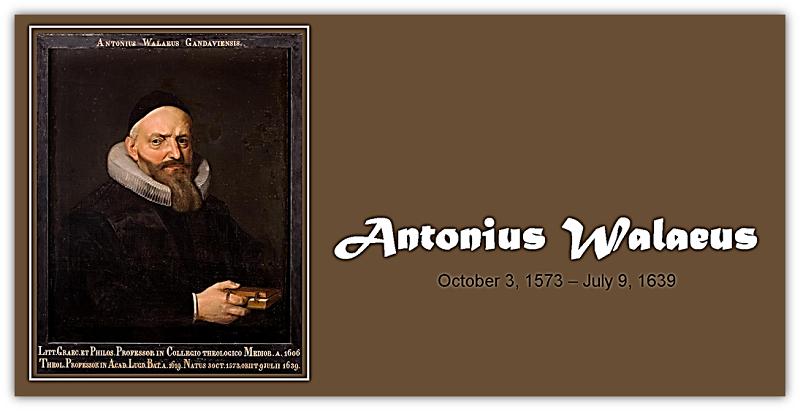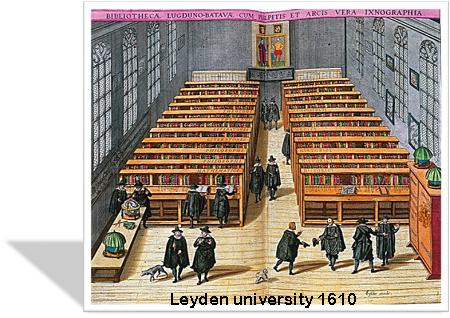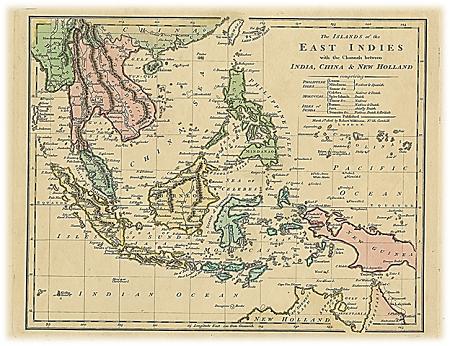Antonius Walaeus October 3, 1573 – July 9, 1639
Antonius Walaeus October 3, 1573 – July 9, 1639

Minister of the Church⤒🔗
Antonius Walaeus was born on October 3, 1573, exactly one year before the liberation of Leyden from Spanish domination. It was the city in which he was to play an important role during the first part of the 17th century. Walaeus was born at Ghent in the Southern Netherlands. He was a descendant of the distinguished house of De Waele. Since the middle of the 14th century its members held many most honourable government positions. His father, Jacques de Waele, served the Count of Egmond, who was cruelly killed by the Spaniards.
Father De Waele joined the party of Prince William of Orange, and it was for this reason that he had to take refuge in the northern part of the Netherlands. He settled in Middelburg and here the young Antonius was educated at the Latin school. He was destined to become a notary, but he himself wanted to go in a different direction. He had a strong desire in his heart to become a minister of God's Word. Unfortunately, however, being fugitives, the family did not have sufficient financial means anymore to pay for Antonius' study. Then, in 1595 a fine opportunity was presented to him under God's providence. The Provincial States of Zeeland decided to make available thirty-six scholarships of which twenty-four were to be given to the cities of Walcheren. Antonius was one of the beneficiaries.
So he came to Leyden, where he lived with the famous theological professor Franciscus Gomarus, who was an excellent guide for him. Gomarus urged him personally to study diligently the Bible, together with the Catechism and the Confession. In three years he completed his studies and was allowed, before entering into the ministry, to make the, at that time, usual foreign trip to some other universities. Walaeus travelled to Rouen, Paris, Orleans, Bourges, Vienna, and Geneva. In Geneva he studied under Theodorus Beza, Calvin's successor. He then continued his trip via Lausanne, Bern, Basel, and Heidelberg. Finally, in 1601, he returned to Leyden, with flattering testimonies of several professors abroad.
Back home, it was a surprise that the church of Leyden wanted to call him. But Zeeland wanted its promising pupil back. The consistory of the church at Middelburg had destined him for the ministry in Calais, in France. Walaeus himself and his parents convinced the consistory in Middelburg that it would be better for him to accept the call of the church at Koudekerke on Walcheren, not far from Zeeland's capital. He was installed therein November 1602. Early in 1605 he went to Middelburg, which church he served for several years as minister of God's Word.
Walaeus chose for the party of the Reformed over against the Arminians, and in 1617 he, for a short time, served the Reformed "church-in-doleantie" at The Hague and also at the court of Prince Maurits of Orange. He was delegated to the national synod of Dort 1618/19 – remarkably enough, not by the churches but by the Sates of Zeeland. This had to do with the fact that he was also called as professor in Middelburg at its theological college. Walaeus had a great influence on the synod, especially on the establishment of the Canons of Dort. During the last few days of this synod he was appointed to assist John van Oldenbarneveldt, one of the Arminian political leaders who was sentenced to death. Walaeus surrounded him with pastoral care before the execution took place.
Professor at Leyden←⤒🔗
In that same year, 1619, Walaeus was appointed as professor in Dogmatology at Leyden. He began this task in October of that year with an inaugural speech about the proper manner of theological study. In his quality of professor he, together with other professors in Leyden, wrote a so-called Censura against the new Arminian confession. This "Refutatio" was requested by the provincial synod of Zuid-Holland at Gorinchem, 1622. The refutation was sharp, but to the point.

The American historian J.L. Motley correctly called Walaeus "a learned but amiable man." Walaeus remained the pastor, also in his professorship. His character was mild and friendly, but, as soon as the truth of God's Word was attacked, he was resolute. It was no wonder that Walaeus enjoyed the confidence of many. Influential Reformed people consulted him. Even the magistrate of Amsterdam asked him for advice. Three times the rectorship of Leyden's Academy was entrusted to him.
No doubt a matter of honour was also his appointment as translator of the New Testament, together with two other professors. Walaeus worked very hard on that project and it put a great strain on his physical strength. However, he was enabled to finish the work and it was a great satisfaction to him when the complete "Statenbijbel" could be published in 1637. Together with Hommius and Rivetus he offered the first copy to the government.
Walaeus was one of the four authors of the Synopsis purioris theologiae, the Reformed dogmatic textbook of the 17th century. He wrote also a treatise about the sabbath. His interests were very broad. He was a member of the board of governors of the Latin school at Leyden, and together with another professor he designed a completely new school order. The design was approved and issued as the new school order in October 1625. It started with the words: "Piety must be the beginning and the end of all study." The first chapter dealt with the observance of the duties of religion by teachers as well as students.
In his rectorial speeches Walaeus very much stressed that there are four main conditions for each and every student: moderation, modesty, reverence for teachers, and piety. Not the use of things, but their misuse is sinful. Many will never become learned because they think that they already know it all. The important thing in all study is complete dependence on God. This is necessary because all good gifts come from Him. Walaeus himself served as a living example of these things to his colleagues and to his students.
Seminarium Indicum (Indian Seminary)←⤒🔗
The name Walaeus is especially connected with the training for missionaries. Already in Middelburg Walaeus had shown awareness of the necessity of mission work. He there already instructed students who were able to go to the East as ministers of God's Word. In 1614 the classis of Delft judged that it was necessary to establish a college for the training of missionaries, first in Leyden, and, if possible, later on in the East Indies. It took some time before this could be realized. The importance of this training was advocated by a minister-missionary who worked in the East Indies and by one of the students in Leyden. Moreover, the first governor-general of the Dutch East Indies, Jan Pietersz. Coen, complained that there was a lack of ministers for the church there. Considering all these pleas, the East Indies Trade Company decided to establish an Indian Seminary at Leyden.
In the Ordinances of this seminary it was stated that the future preachers of the gospel in the Dutch East Indies had to be instructed as much as possible in the religion of the heathen and of Islam and, without undue delay, also in the characteristics and morals of the heathen countries and in the Malayan language. This stipulation was necessary, because it was acknowledged that in many cases
the future ministers excelled in ignorance and indifference concerning the study of the East Indian languages.
The theological faculty of Leyden's University was requested to draft the plan; this was done by Walaeus. The demanding proposal called for no less than twenty separate courses, including theology and philosophy interspersed with activities such as prayer, fasting, visitation of the poor, and the practice of piety. All these requirements had to be met by a candidate before he was sent out. Since Walaeus was involved in this missionary training from the very beginning, the care and the leadership of the mission seminary were entrusted to him. Although it was not easy for him to give up his professorship at the university, he accepted the appointment at the mission seminary.

Throughout a period of ten years Walaeus trained students for mission work. In 1622 he opened the seminary in his home. Especially for his wife it was a difficult time, for not only were the lectures held in the home of the Walaeus family but the students were lodged there as well. Sometimes they had six students living with them in their house. Walaeus regulated their studies and gave many lectures. The students were not allowed to speak any language but Latin. Wine, beer, and liquor, as well as the smoking of tobacco were forbidden, "unless under doctor's order and with consent of the governor." The students were not allowed to take an examination on their own account, nor to speak an edifying word in the villages. Much less were they permitted to keep company with girls or to get engaged. Walaeus had the privilege to deliver to the churches in the Dutch East Indies a dozen ministers of the Word who were faithful missionaries and who excelled in scholarship and piety.
However, the seminary existed no longer than ten years. The governors argued that the costs were too high. More probably, the real reason was that the missionaries who were trained by Walaeus were not flexible enough in the eyes of the officials of the East Indies Trade Company, and too strict over against the many sinful practices in the far East. Walaeus was honoured with a guilded cup, and that was it. Again and again the churches as well as private persons tried to re-establish the seminary, but it never happened. Walaeus was nevertheless a pioneer in this respect, and his name must be mentioned with honour in connection with this first seminary for the training of missionaries, often still called "Walaeus' Seminary."

Add new comment